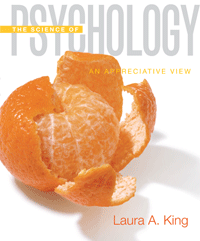1 A) scientific attitude. B) valid statement. C) hypothesis. D) hindsight. 2 A) Why? How do you know? Where's your evidence? Is there another explanation? B) How does this affect me? Why is it important that I know this? C) Where will I use this information? Will it help me get ahead in life? D) Who? What? When? Where? How? Can I get a quote? 3 A) scientists rarely work together or review previous research, which can leave publications in disagreement with each other. B) there is no review process in scientific publication; if someone writes well enough, the article will be published regardless of its validity. C) truth and reality are in the eye of the beholder. D) part of the scientific process is testing and re-testing a theory, to see if everyone gets the same results each time; if they don't, the research may not agree. 4 A) define which behaviors or qualities differentiate one person's "intelligence" from the next person's, and define the behaviors she associates with "stressed out." B) explain what procedures she will use to collect her data. C) define which variables are independent and which variables are dependent. D) use self-report measures as part of her experiment. 5 A) intelligence B) neuropsychological C) achievement D) personality 6 A) Just because someone is walking a dog doesn't mean the person owns that dog. B) Chaim did not observe people with cats before coming to his conclusion. C) Correlation does not prove causation; the association may be spurious. D) Chaim did not operationalize "dog." 7 A) Parsimonious problem B) Non-representative sample problem C) Generalizability problem D) Third variable problem 8 A) independent variable; extraneous variable B) extraneous variable; dependent variable C) independent variable; dependent variable D) dependent variable; independent variable





